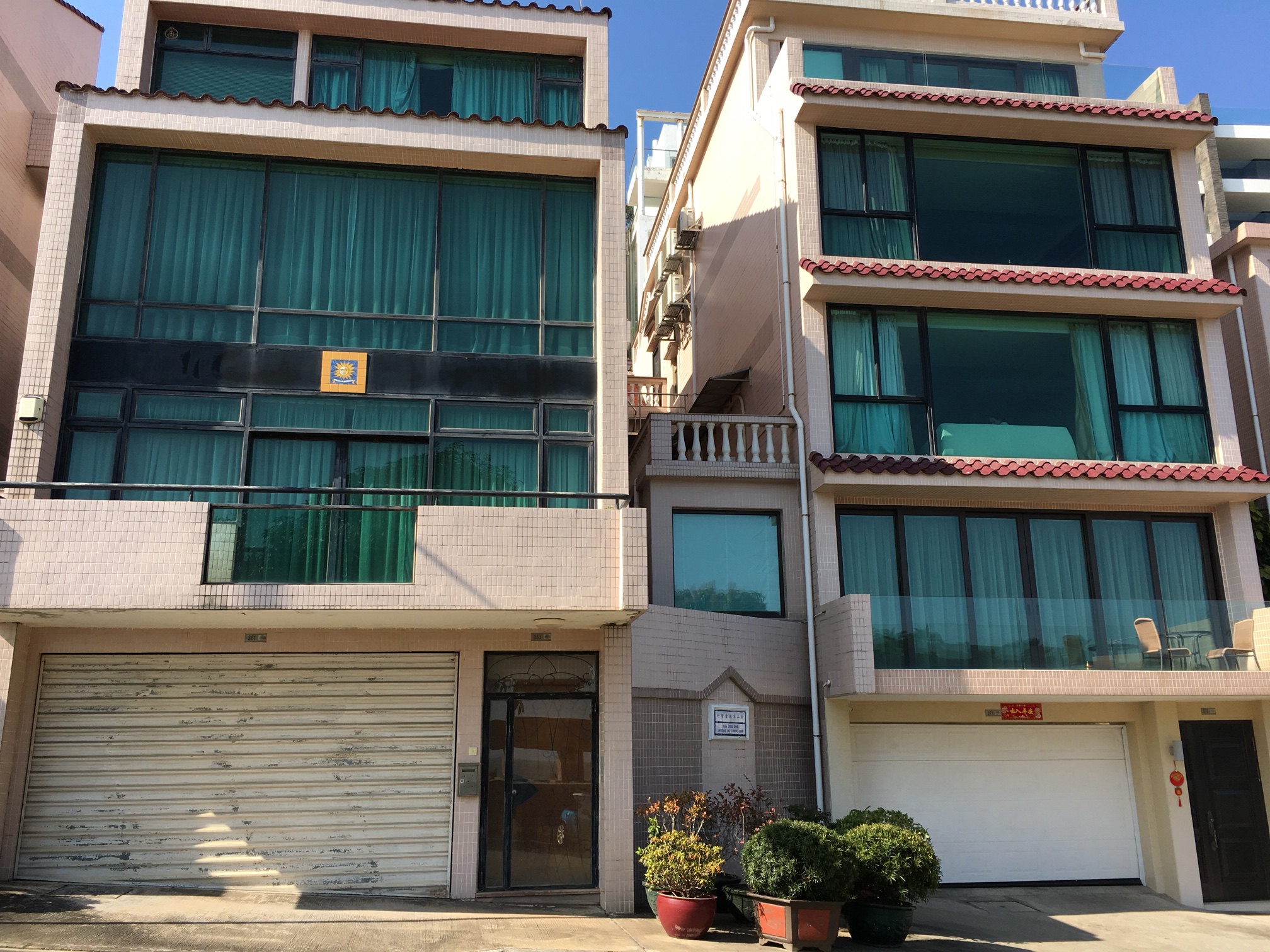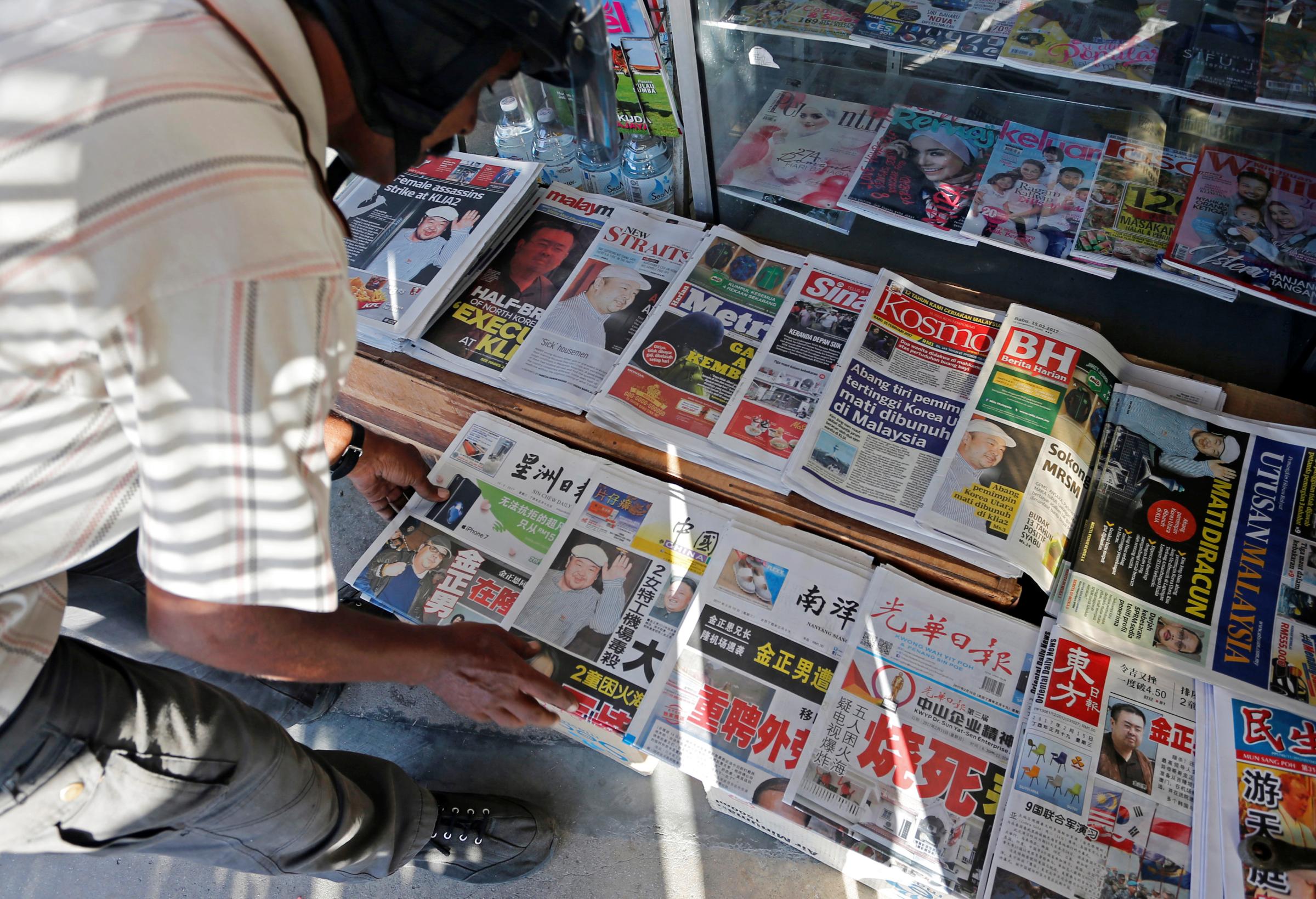Never has a ticket to Disneyland proved so costly. When, in May 2001, Kim Jong Nam, the eldest son of North Korean dictator Kim Jong Il, was arrested at Tokyo’s Narita airport, he was the presumed heir to the secretive Stalinist state. But the embarrassment caused by that trip on a forged Dominican passport — which he later claimed was to visit Mickey and Donald at “the Happiest Place on Earth” — saw him fall out of favor in Pyongyang.
That estrangement led Kim Jong Nam to spend most of the following years outside his homeland, usually in the semiautonomous Chinese territory of Macau, where he reportedly relished in the sybaritic delights of Asia’s Las Vegas. In true playboy fashion, he would also bounce around party spots in Beijing, Bangkok, Moscow and Singapore. That was until Tuesday morning, when the 45-year-old’s life ended at Kuala Lumpur International Airport in Malaysia as he was waiting for the 10 a.m. flight back to Macau.
The circumstances of his death are hazy. Various reports say he was sprayed in the face with a toxin, attacked with poisoned needles, or that he simply collapsed. CCTV stills show one of two suspected female assassins, wearing a white top and hot pink leggings, near him at the terminal. The Japanese Kyodo news agency is already reporting the assailants as dead, and ABC’s Seoul bureau chief says Malaysian police have found the bodies. But then a woman traveling on Vietnamese travel documents was arrested at the airport terminal after being identified from security footage, according to local police. A woman from Myanmar and four men are also reportedly being sought.
Malaysian police suspect foul play in the death of Kim, and the South Korean authorities have been quick to lay blame at the regime led by his half brother, current North Korean Supreme Leader Kim Jong Un, whom the older Kim had never met.
The news has shocked many. Kim Jong Nam was, if anything, a minor irritation to the regime. According to Yoji Gomi, the author of the 2012 book, My Father, Kim Jong Il, and Me, Kim Jong Nam wanted “North Korea to embrace economic reform and open its doors.” He occasionally spoke to journalists of democratizing the North Korean state, but always in measured terms. While he said he had a comparatively liberal worldview owing to his lengthy education in Europe — Kim Jong Un also studied in Europe but for a shorter period — he never displayed any ambition to overthrow his younger sibling or create a government in exile.
In 2010, Kim Jong Nam told Japanese media, “Personally I am against third-generation succession, [but] I hope my younger brother will do his best for the sake of North Koreans’ prosperous lives.”
His intention to return to Macau at the time of his death hardly speaks of an interest in power grabbing. Kim reportedly owned two villas in Coloane — a rapidly developing island that nonetheless passes for leafy suburbia in the densely populated former Portuguese enclave. But apart from those properties, he left little trace of his presence there, with little to distinguish him, physically from the millions of middle-aged, North Asian men who cram the territory’s casinos each year.
A few journalists, some from Japan, were gathering outside the villas on Wednesday afternoon, but there was little movement otherwise. The drapes in one of the villas were all closed, while a young child and a nanny occasionally looked at the people outside from the second floor of the other. It’s not clear whether Kim is even the current owner these dwellings. A number of plainclothes and uniformed police officers were stationed outside another another residential complex in Macau, where Kim Jong Nam and his family reportedly live, but wouldn’t confirm why they were dispatched to the location.
Front-desk staff members at the old Mandarin Oriental Macau — one of Kim Jong Nam’s favorite haunts, now taken over by Chinese investors and renamed — shook their heads when they were shown his photo. A longtime worker at the Lisboa, Macau’s most venerable casino, said they hadn’t seen Kim ever.

Says John Delury, associate professor of East Asian studies at Yonsei University’s Graduate School of International Studies in Seoul: “I would dispute the notion he was a pretender to the throne. He’s been very apolitical.”
Kim Jong Nam’s undoing, however, may have simply been his being descended from North Korea’s mythologized founding father Kim Il Sung. The family’s “Baekdu bloodline” is named after the extinct volcano considered the birthplace of the Korean people. Rumors persist that China, growing ever more wary of Pyongyang’s bluster and tireless pursuit of nuclear weapons, was grooming Kim Jong Nam as a pliant puppet should regime change become unavoidable.
Given his dynastic credentials, that would seem an easy sell to the North Korean leadership and people. Beijing was certainly keeping Kim Jong Nam close, presumably handing his personal security and providing a sizable stipend. One North Korean defector, citing a Chinese intelligence officer, even told TIME that Chinese President Xi Jinping met with Kim Jong Nam to “size him up.”
That seems highly improbable, though such rumors could well have fed the regime paranoia that ultimately led to his death. On the other hand, an internal threat may have prompted a kill order. Earlier this month, Kim Won Hong, the head of state security, was mysteriously purged. There was also an unconfirmed report in the Malaysian media Thursday that Kim Jong Un’s influential half-sister had also been arrested. And North Korea’s ambassador to the U.K., who became the nation’s highest-ranking diplomat to defect last August, has said that the nation’s elites were turning against the younger Kim.
“Is [the death of Kim Jong Nam] a sign of some instability inside, or is it just the regular purging of people that are possible challengers?” asks Daniel Pinkston, a North Korea specialist at Troy University in Seoul. “Is it a sign of strength or a sign of weakness?”
Some have remarked that Kim Jong Nam’s death comes just two days before the birthday of his and Kim Jong Un’s father, Kim Jong Il. The “Day of the Shining Star” is one of the biggest celebrations in North Korea, marked with floral displays, an ice sculpture festival, a hydrogymnastics performance, and a gargantuan meeting of party officials. The assassination of Kim Jong Il’s eldest son so close to such an important occasion is remarkable, given the state-enshrined veneration of the bloodline, and suggests that it had the explicit approval of the Supreme Leader.

Kim Jong Un, of course, has shown little regard for kinship, having purged his powerful uncle, Jang Song Thaek, in 2013. A South Korean think tank said in December that he had executed 340 people since assuming power.
“It’s an indicator of how ruthless Pyongyang is and what kind of steps they are willing to take,” says Pinkston.
According to Wu Qiang, a political scientist formerly with Beijing’s Tsinghua University, the older Kim’s passing will not in itself change the East Asian security dynamic. “But it is symbolic,” he says. “It shows that Kim Jong Un is a crazy opportunist. After Donald Trump took power, everything is in chaos. Kim Jong Un knows how to gain the maximum profits and political leverage.”
It has also robbed Beijing of a potentially useful client, and narrowed the options for regime change in Pyongyang. Who knows what might have happened if the older Kim’s forged Dominican passport had passed muster back in 2001, or if the Japanese authorities had chosen not to deport him? A reform-minded Kim Jong Nam might have led North Korea into the light. As such, that Disneyland ticket is looking very costly indeed.
—With reporting by Yang Siqi / Beijing, Stephen Kim / Seoul and Kevin Lui / Macau
More Must-Reads from TIME
- Caitlin Clark Is TIME's 2024 Athlete of the Year
- Where Trump 2.0 Will Differ From 1.0
- Is Intermittent Fasting Good or Bad for You?
- The 100 Must-Read Books of 2024
- Column: If Optimism Feels Ridiculous Now, Try Hope
- The Future of Climate Action Is Trade Policy
- FX’s Say Nothing Is the Must-Watch Political Thriller of 2024
- Merle Bombardieri Is Helping People Make the Baby Decision
Write to Charlie Campbell / Beijing at charlie.campbell@time.com